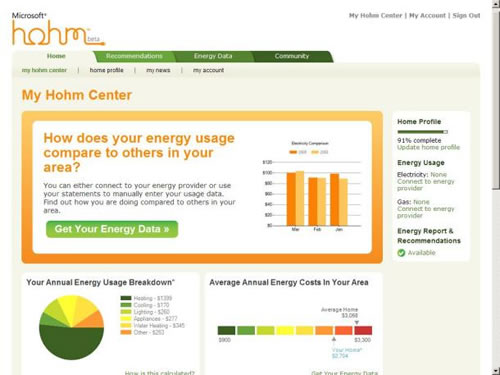Hohm was announced in late June as an incubator project within Microsoft to help users manage and track their home energy use, and potentially modify their habits in order to save money. The service is free to use, supported by advertising, but it wasn’t until today that the Redmond-based company opened the doors on Hohm to the general public – or at least to those living in the U.S.

The site can use as little information as a ZIP code to start predicting your energy consumption, but the more questions you answer about your residence, the more accurate the tool can be. This includes details from the year your house was built and its square footage to the numbers of doors and windows and the type of bulbs used in each room. Hohm’s energy-efficiency recommendations are courtesy to the actual brains behind it – an existing database licensed from Lawrence Berkeley National Laboratory and the Department of Energy – and includes a list of improvements organized in categories that can be made to save energy and money.
Depending on where you live, Hohm can also detail your electricity or gas usage over time with a supported provider, sparing you the effort of manually entering your bills. Like Google’s competing PowerMeter service, down the road the goal is to work with smart meters and other smart devices to provide closer to real-time energy data consumption data and remotely adjust appliances to save energy during peak times.
https://www.techspot.com/news/35361-microsofts-energy-monitoring-tool-hohm-enters-public-beta.html